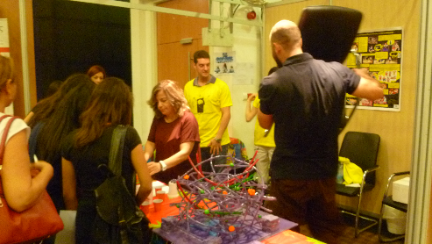 Duration: October 2013 - September 2017
Duration: October 2013 - September 2017
Funding: € 3,178.803
Lead of Training: A. Odysseos
Nanomedicine offers capability to significantly change the course of treatment for lifethreatening diseases. Many of the most significant current therapeutic targets, to be viable in practice, require the efficient crossing of at least one biological barrier. However, the efficient and controlled crossing of the undamaged barrier is difficult. The range of small molecules that can successfully do so (via diffusive or other non-specific processes) is limited in size and physiochemical properties, greatly restricting the therapeutic strategies that may be applied. In practice, after several decades of limited success, there is a broad consensus that new multidisciplinary, multi-sectoral strategies are required. Key needs include detailed design and understanding of the bionano-interafce, re-assessment of in vitro models used to assess transport across barriers, and building regulatory considerations into the design phase of nanocarriers. The overarching premises of the PathChooser ITN are that (i) significant advances can only be made by a more detailed mechanistic understanding of key fundamental endocytotic, transcytotic, and other cellular processes, especially biological barrier crossing; (ii) elucidating the Mode of Action / mechanism of successful delivery systems (beyond current level) will ensure more rapid regulatory and general acceptance of such medicines. Paramount in this is the design and characterization of the in situ interface between the carrier system and the uptake and signalling machinery. (iii) inter-disciplinary knowledge from a range of scientific disciplines is required to launch a genuine attack on the therapeutic challenge. The PathChooser ITN program of research and training will equip the next generation of translational scientists with the tools to develop therapies for a range of currently intractable (e.g. hidden in the brain) and economically unviable diseases (e.g. orphan diseases affecting a limited population).
